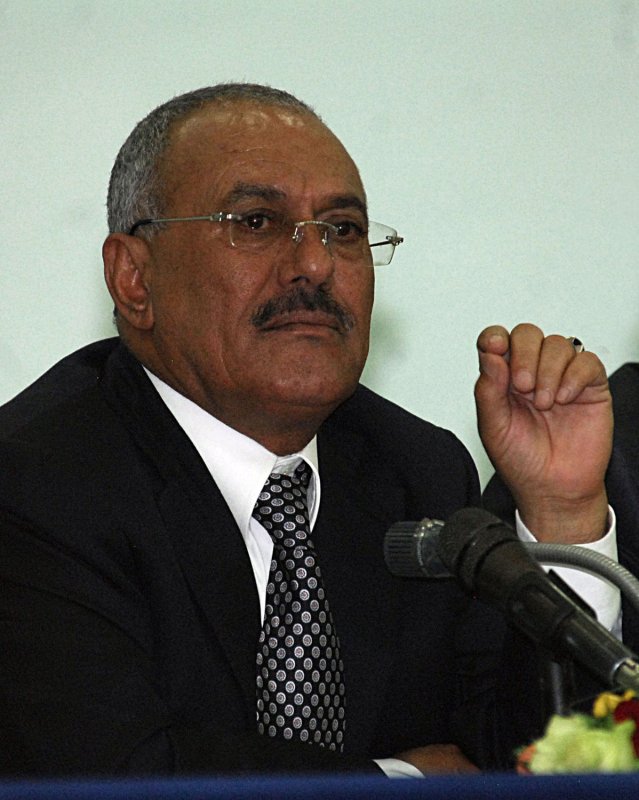Yemeni President Ali Abdullah Saleh speaks at event during which he accused Israel and the United States of fomenting anti-regime uprisings rattling the Arab world, on March 1, 2011 at Sanaa's university campus, as vast numbers of protesters poured into a square for a massive anti-regime rally. UPI/Fouad Harazi |
License Photo
SANAA, Yemen, June 4 (UPI) -- Yemen's vice president assumed presidential responsibilities Saturday night with President Abdullah Saleh in Saudi Arabia for medical treatment, CNN reported.
Yemeni government spokesman Abdu Ganadi told the U.S. news network of the power transfer to Vice President Abed Rabbo Mansour Hadi. CNN said a source close to the Saudi government said Saleh arrived in Riyadh about midnight, a day after receiving what a senior Yemeni official had called a slight head wound when two mortar shells hit a prayer area in his compound in the capital, Sanaa.
CNN said some Yemeni officials maintained Saleh was still in Yemen. Yaser Yamani, Sanaa's deputy mayor, told Yemeni state TV Saturday night "Saleh is still being treated in the military hospital in Sanaa."
However, CNN's Saudi source said Saleh was transported to a nearby hospital after his plane reached Saudi Arabia.
At least seven guards were killed and five senior government officials were injured in Friday's attack, The Daily Telegraph reported.
Saudi officials told The New York Times Saturday Saleh's condition had worsened and he had agreed to be flown to the Saudi capital Riyadh for treatment.
Saleh, in power for 33 years, could run into difficulty returning because of the ongoing violence and pressure for him to leave office, the Times said.
After the attack, Saleh made a radio statement denouncing the attack "by an outlaw gang," although his breathing sounded labored, the BBC said.
Demonstrations against Saleh's regime have become increasingly violent this year in and around the capital.
Observers say more than 160 people have been killed in clashes between government security forces and protesters since last week.















